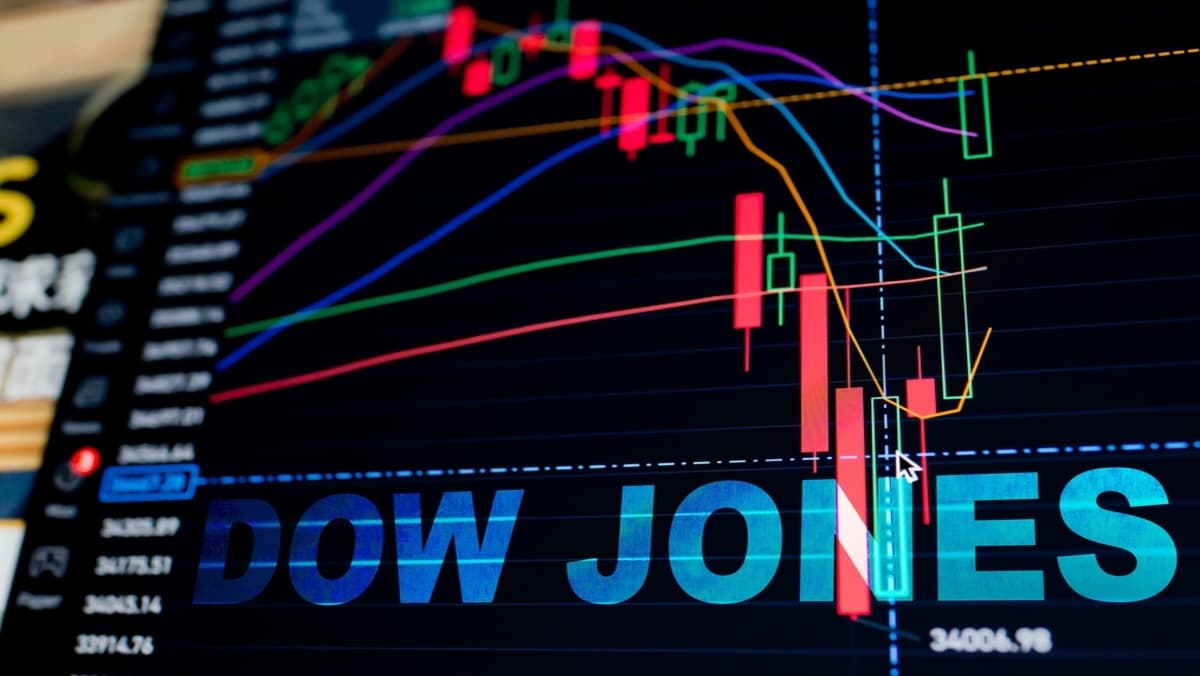星期二 Apr 22 2025 07:53

5 最小

Stock market today: the stock market experienced a significant downturn, with major indices such as the Dow Jones Industrial Average, S&P 500, and Nasdaq all closing lower.
This decline was largely attributed to comments made by President Donald Trump, who criticized Federal Reserve Chair Jerome Powell. Trump's remarks have reignited concerns about monetary policy and its implications for the economy, leading to increased volatility in the markets.
Context of the Criticism
Donald Trump has a history of expressing dissatisfaction with the Federal Reserve, particularly regarding interest rate policies. His latest comments targeted Powell's approach to managing inflation and economic growth. Trump argued that the Fed's policies are too restrictive and could hinder economic recovery. This criticism comes at a time when many investors are closely monitoring the Fed's actions, especially in light of rising inflation and its potential impact on consumer spending.
Impact on Investor Sentiment
Trump's remarks have contributed to a shift in investor sentiment. Many market participants are concerned that the Fed may not act swiftly enough to address inflationary pressures. This uncertainty has led to a sell-off in equities, as investors reassess their positions in light of potential changes in monetary policy. The fear of rising interest rates has historically led to declines in stock prices, particularly in growth-oriented sectors.
Inflation Concerns
Inflation remains a critical issue for the economy and the stock market. Recent reports have indicated that inflation rates are climbing, prompting fears that the Federal Reserve may need to increase interest rates sooner than anticipated. Higher interest rates can lead to increased borrowing costs for consumers and businesses, which may dampen economic growth. As a result, investors are reacting to these inflationary signals by pulling back on stock purchases.
Employment Data
Employment figures also play a significant role in shaping market dynamics. Recent job reports have shown mixed results, with some sectors recovering while others continue to struggle. The uncertainty surrounding the labor market adds to the overall anxiety in the stock market. Investors are keenly aware that a robust job market is essential for sustained economic growth, and any signs of weakness can trigger market declines.
Sector Performance
Technology Sector
The technology sector, which has been a significant driver of market gains in recent years, faced notable declines today. Many tech stocks are sensitive to interest rate changes, and the prospect of rising rates has led to a sell-off in this sector. Investors are reevaluating their exposure to technology companies, which have enjoyed high valuations but may be vulnerable to shifts in monetary policy.
Financial Sector
Conversely, the financial sector often benefits from rising interest rates, as banks can charge more for loans. However, the uncertainty surrounding the Fed's actions has created a mixed environment for financial stocks. While some investors see potential in financial institutions, others are cautious about the broader economic implications of rising rates.
International Indices
The decline in U.S. markets has had a ripple effect on global indices. Many international markets are closely tied to U.S. economic performance, and fears of a slowdown in the world's largest economy can lead to declines elsewhere. Investors around the globe are monitoring the situation closely, as shifts in U.S. monetary policy can influence capital flows and investment decisions worldwide.
Currency Fluctuations
The uncertainty in the stock market has also impacted currency markets. The U.S. dollar often strengthens during periods of market volatility, as investors seek refuge in perceived safer assets. This dynamic can affect international trade and investment, further complicating the economic landscape.
Fed's Response
Looking ahead, the Federal Reserve's response to current economic conditions will be crucial. Investors are keenly awaiting signals from Powell and other Fed officials regarding potential interest rate hikes. Clear communication from the Fed can help stabilize markets and restore investor confidence. However, any missteps or lack of clarity could exacerbate market volatility.
Investor Strategies
In light of the current market conditions, investors may need to reassess their strategies. Diversification across sectors and asset classes can help mitigate risks associated with market fluctuations. Additionally, staying informed about economic indicators and Fed policy will be essential for making informed investment decisions.
Today's market decline, driven by Trump's criticism of Fed Chair Powell and ongoing concerns about inflation and employment, highlights the interconnectedness of economic factors and investor sentiment. As the situation evolves, market participants will need to remain vigilant and adaptable to navigate the challenges ahead. The Federal Reserve's actions in the coming weeks will play a pivotal role in shaping the market's trajectory.
When considering shares, indices, forex (foreign exchange) and commodities for trading and price predictions, remember that trading CFDs involves a significant degree of risk and could result in capital loss.
Past performance is not indicative of any future results. This information is provided for informative purposes only and should not be construed to be investment advice.